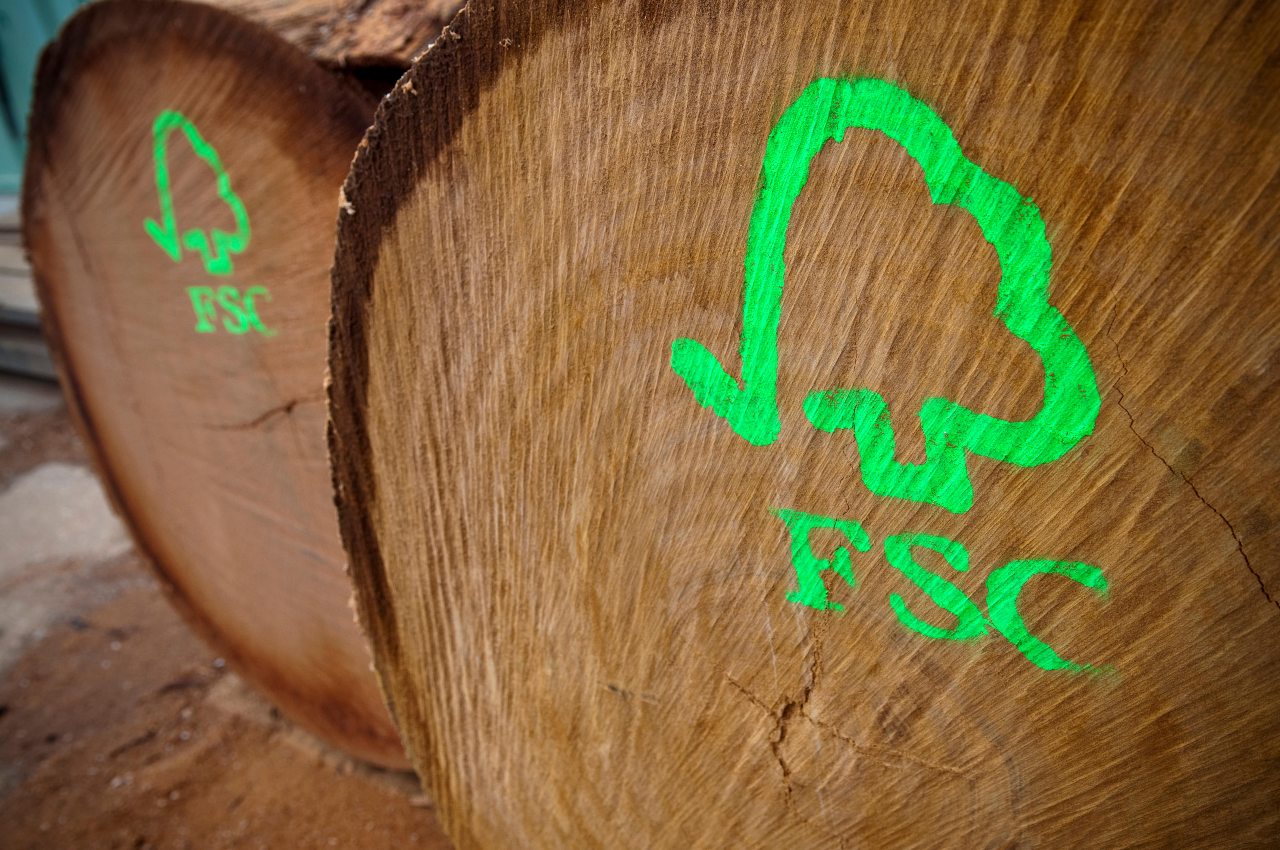- New analysis by Earthsight reveals European consumers have been buying beef and leather from firms linked to illegalities in the Brazilian Amazon uncovered by the Environmental Investigation Agency
- At a time when the groundbreaking EU Deforestation Regulation is under threat from lobbyists seeking to delay and weaken it, this serves as a timely reminder that without the law, European consumption will continue to drive deforestation and rights abuses overseas

Aerial view of Nelore cattle in an auction corral.
Industry pushback to the EU Deforestation Regulation (EUDR) has been ramping up as the start of its enforcement draws closer: representatives from sectors with some of the largest deforestation footprints in the world are advocating to postpone the enforcement of the regulation.
Under pressure from industry and certain politicians, policymakers in Brussels risk losing sight of why this law was passed in the first place: scandal after scandal has demonstrated how EU consumption drives devastating deforestation – and associated human rights abuses – across the world. As a major contributor to the climate emergency, addressing the EU’s role in global deforestation carries particular urgency. In an open letter addressed to EU Commission President Ursula von der Leyen, over 170 NGOs – including Earthsight – have urged her to stand firm and reject pushes for postponement of the EUDR.
A new report, Who bought Apyterewa’s illegal cattle?, published in May by the Environmental Investigation Agency (EIA) provides a timely reminder of the EUDR’s importance, one that lawmakers should heed. EIA’s investigation traces cattle raised illegally within the Apyterewa indigenous territory, stretching 7,738.2km2 over the Amazonian state of Pará, to the supply chains of JBS, the world’s largest meat producer, and Frigol, which operates two large slaughterhouses in the state. Cattle raised in Apyterewa, home of the Parakanã Indigenous Peoples, were found to have been moved to farms outside the indigenous land before being sold to JBS and Frigol slaughterhouses. Between 2008 and 2023, Apyterewa was the most heavily deforested indigenous land in the Brazilian Amazon, with 476km2 of its forests cleared – an area larger than New York City.

Deforestation inside the Apyterewa Indigenous Territory, home to the Parakanã Indigenous Peoples, and the location of 86 illegal farms identified by the Federal Prosecutor's Office (MPF).
In response to EIA’s findings, Frigol said it had detected no irregularities with its direct suppliers, and that one of the farms implicated had provided the necessary declarations acceptable to the Federal Prosecutor's Office. JBS stated that it had blocked the farms in question and that, prior to this, its purchases were in compliance with its supply chain monitoring commitments and internal sourcing policy.
JBS was responsible for 51 per cent of Brazilian beef exports to the EU between January and November 2023, according to shipment records analysed by Earthsight. Ten of its 37 production units are located in Pará and two other states within the Amazon. JBS has been plagued for decades with allegations of deforestation, land grabbing and human rights abuses in Brazil. In November 2022, to give just one example, a report published by Unearthed revealed that the company had admitted to buying almost 9,000 cattle in the Amazon from a criminal described as one of Brazil's biggest deforesters.
EIA’s investigation revealed that the majority of hides from the JBS slaughterhouses linked to the illegalities uncovered are processed at JBS’s wet blue tannery in Pará state. It is unclear whether leather produced by JBS in Pará currently reaches EU supply chains, but the bloc’s exposure is high: according to Earthsight’s analyses of shipment records, JBS exported approximately 9,333 tonnes of leather to the EU in 2023, with Italy and Spain accounting for the highest import volumes.
The urgent need for the timely and effective enforcement of the EUDR – and the failure of European corporations to clean up their supply chains despite years of warnings – was evidenced in a documentary aired in March 2024 by major German public broadcaster, ARD. The investigation underpinning the documentary uncovers startling connections between the JBS's leather supply chains and deforestation. Astonishingly, 90 per cent of the leather is exported to major players including US-based Lear, a leading manufacturer of car seats which has BMW as one of its customers.
This is not the first time BMW has been exposed for using suspect leather: in 2020, Earthsight traced leather from illegally cleared forests in Paraguay inhabited by the Ayoreo Totobiegosode – the sole indigenous people living in voluntary isolation anywhere in the Americas outside the Amazon – to major European car manufacturers, including BMW. BMW has denied any links to illegalities in its Paraguayan leather supply chains. As this new analysis demonstrates, rather than address the problem, BMW has continued to merrily import high-risk leather from Latin America.
For decades, companies trading forest-risk commodities have made sustainability claims and promises to cut their deforestation footprints. But EIA’s report is just the latest of countless investigations that repeatedly demonstrate their failure to follow through on their commitments. Meanwhile, with each passing year of inaction, the world’s biomes and climate are pushed further towards irreversible tipping points. Delay cannot be an option: the EUDR, implemented on time and effectively enforced, is imperative to ensuring European consumption stops driving deforestation overseas, and to meeting the EU’s climate and biodiversity goals.


